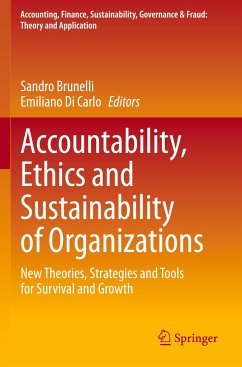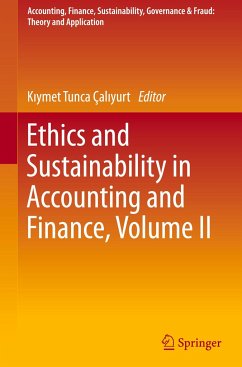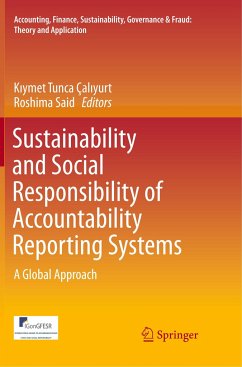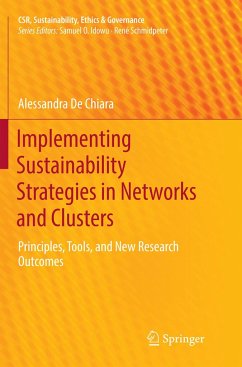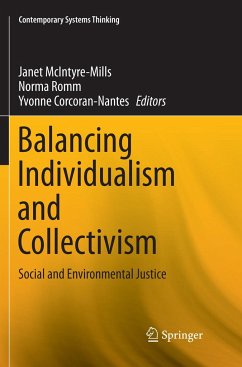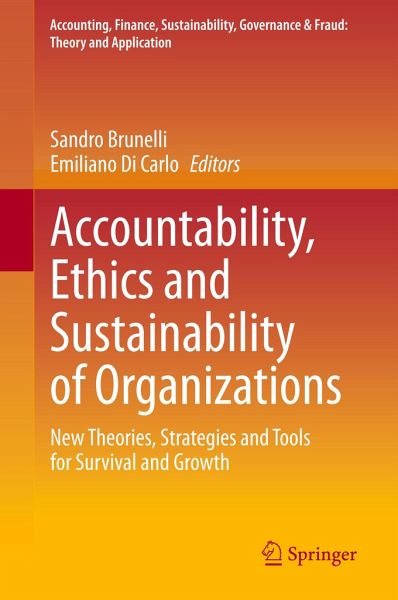
Accountability, Ethics and Sustainability of Organizations
New Theories, Strategies and Tools for Survival and Growth
Herausgegeben: Brunelli, Sandro; Di Carlo, Emiliano

PAYBACK Punkte
68 °P sammeln!
This book explains how the traditional paradigm of private and public organizations is changing as a result of the multiple factors that are affecting the way in which goods and services are produced, and for whom they are produced. In view of these disruptive trends, the theory of the firm needs to be updated and to some extent rethought. Moreover, diverse challenges and opportunities such as climate change, aging populations, and new public accountability requirements are necessitating novel frameworks to ensure the long-term survival of public and private organizations.Against this backdrop...
This book explains how the traditional paradigm of private and public organizations is changing as a result of the multiple factors that are affecting the way in which goods and services are produced, and for whom they are produced. In view of these disruptive trends, the theory of the firm needs to be updated and to some extent rethought. Moreover, diverse challenges and opportunities such as climate change, aging populations, and new public accountability requirements are necessitating novel frameworks to ensure the long-term survival of public and private organizations.
Against this backdrop, the authors contribute to the debate over the firm's primary interest by proposing a new way of viewing the nature of the firm and its relationship with stakeholders. In addition, they carefully analyze the challenges and opportunities mentioned above, evaluating their significance for various important aspects of organizations through different lenses. Global in scope, the book also takes the United Nations Sustainability Development Goals into account. Accordingly, it will be of interest to all readers seeking a better understanding of the evolving nature of firms and organizations in our changing world.
Against this backdrop, the authors contribute to the debate over the firm's primary interest by proposing a new way of viewing the nature of the firm and its relationship with stakeholders. In addition, they carefully analyze the challenges and opportunities mentioned above, evaluating their significance for various important aspects of organizations through different lenses. Global in scope, the book also takes the United Nations Sustainability Development Goals into account. Accordingly, it will be of interest to all readers seeking a better understanding of the evolving nature of firms and organizations in our changing world.





